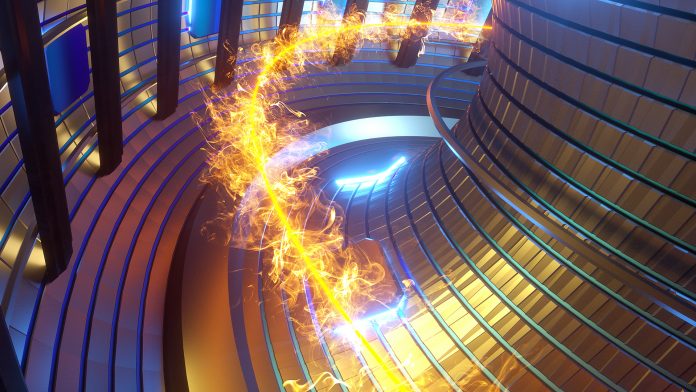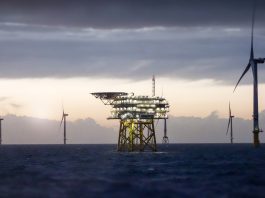Energy experts have proclaimed that small modular nuclear reactors may potentially be the key to achieving the planet’s net-zero emissions targets.
As the world transitions away from the extensive burning of fossil fuels that has created the climate catastrophe we now find ourselves in, specialists in the energy sector are all working diligently to devise the most efficient, ecological, and economical energy solutions to decarbonise our planet. The imminent threat of climate change has led to a plethora of sustainable energy alternatives, including solar, wind, tidal, hydro, and geothermal energy. However, with net-zero emissions needing to be attained in such a short timeframe, nuclear power has emerged as a promising contender, more specifically, a novel generation of small modular nuclear reactors.
The recent Sixth Assessment Report by the UN Intergovernmental Panel on Climate Change (IPCC) outlined how imperative it is for the planet to eradicate its output of carbon emissions, indicating that global average air temperatures may rise by 1.5°C above industrial levels by 2040.
The 2015 Paris Agreement states that all countries need to establish targets and strategies to stay within the temperature rise limit of 1.5°C and transition away from oil, coal, natural gas, and other fossil fuels. Now, energy experts are divided on whether small modular nuclear reactors can either help us achieve our climate goals or cause even more environmental destruction.
Potential of modular nuclear reactors
What are small modular nuclear reactors? The International Atomic Energy Association defines them as nuclear reactors with a capacity of 300 megawatts or under, compared to the 1,000 megawatts or more of traditional nuclear reactors, which gives them minimal environmental footprint. Additionally, modular nuclear reactors take up less space than power plants or wind and solar farms that produce renewable energy.
Nanda Kumar Janardhanan, who teaches energy studies at the Jawaharlal Nehru University, New Delhi, said: “Unlike conventional large nuclear power facilities, which can take a decade or more to build and become operational, small reactors can be ready in a fraction of that time as they are small enough to be manufactured in a factory and transported to the operating site.
“Countries that need clean energy supply can possibly use small modular reactors as an alternative to depending on environmentally damaging thermal power. This is one of the direct benefits that it offers towards climate mitigation. As the demand for hydrogen as a fuel for transportation and industry grows, small modular reactors could also provide the energy needed to generate hydrogen.
“Despite these advantages, the wider usage of small modular nuclear reactors will demand a transformative change in safety measures so as to build public confidence and gain acceptance, such as to disasters like Chernobyl and Fukushima, which have led to anti-nuclear perceptions among certain societies or people.”
The World Nuclear Association (WNA) has stated that nuclear power offers a unique opportunity to achieve the objectives outlined in the Paris Agreement. They believe that the fear of the risks associated with nuclear power has led to the global acceptance of fossil fuels that have contributed to climate change and cause millions of deaths due to air pollution. The organisation is calling on governments, regulators, and industry to accelerate the industrialisation of new nuclear projects, such as modular nuclear reactors.
Karthik Ganesan, fellow and director of research at the Council on Energy, Environment and Water in New Delhi, said: “Asia is one region where nuclear power capacity is increasing. Developing Asia (China, India) and developed Asia (Korea and Japan), who already manage large civilian nuclear programmes, must remain invested in small modular reactor technology.
“But for the small modular nuclear reactor concept to succeed in Asia, it must satisfy the primary requirements of increased safety, simplicity in construction and operation and be comparable in economic terms with conventional nuclear power plants.”
Conflicting perspectives
A range of other climate and energy experts have contradictory views on the potential of modular nuclear reactors to achieve net-zero targets.
M. V. Ramana, a physicist at the Nuclear Futures Laboratory, Princeton University, who works on nuclear power in the context of climate change and nuclear disarmament, said: “Humanity does not have the time to invest in small modular reactors — the climate problem is urgent.
“Entire supply chains would need to be established after the first small modular reactors have been built, tested, and proven. There is no realistic prospect that it can make a significant dent in the need to transition rapidly to a carbon-free electricity system.”









